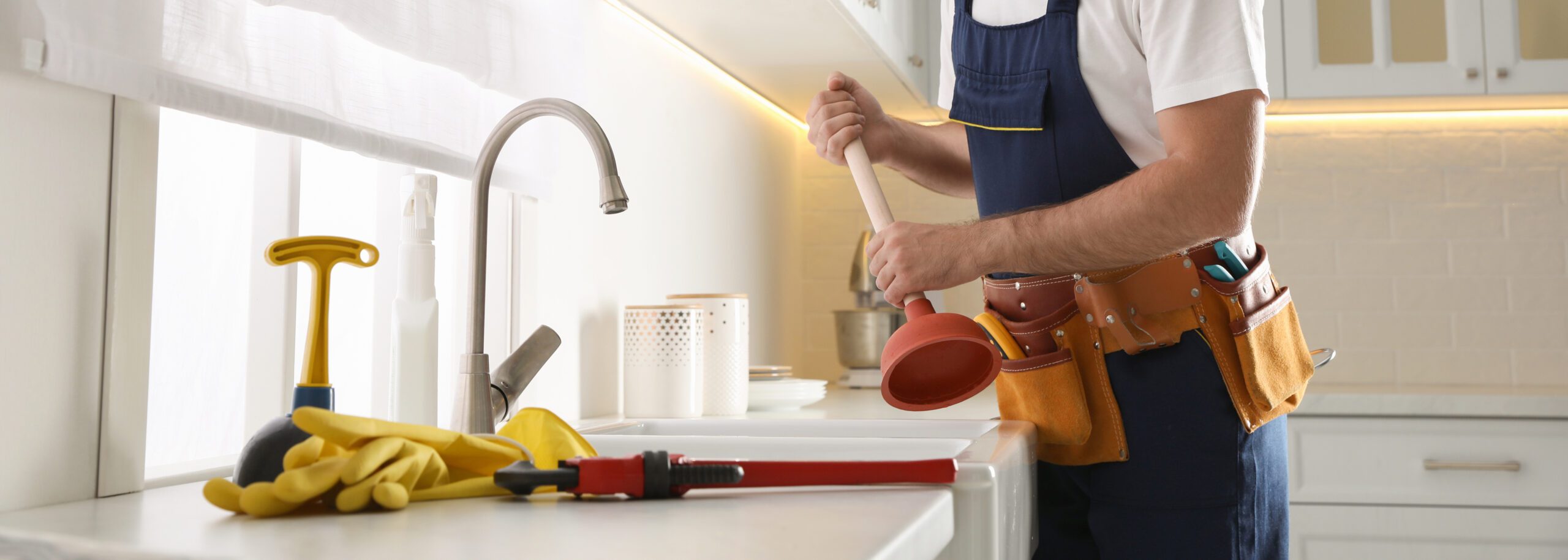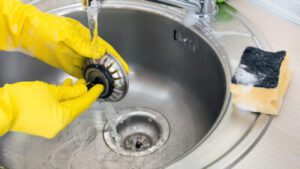
How Do Professional Plumbers Fix Clogged Drains
We’ve all experienced the dismay that comes with discovering to fix clogged drains in the kitchen or bathroom.
And while there are several DIY methods that you can use to deal with this problem, they often do not work. In such cases, the only recourse is to call professionals who can resolve the problem efficiently and quickly. However, professional assistance does involve higher costs and, depending upon the nature and scale of the problem, it can be quite costly.
While most DIY methods use items that are easily available at home, professionals utilise powerful tools and machines suitable for more complicated problems. And it can be quite beneficial to know about the techniques that professional plumbers use to unclog blocked drains.
That’s where we come into the picture by walking you through the common techniques used by professional plumbers for unclogging drains. So, let’s get started!
How Professionals Fix Clogged Drains
In most cases where DIY drain cleaning methods do not work, the reason is that the sewer lines and drains become clogged with a wide variety of materials over time. These include soap scum, grease, body fluids, cooking grease and others. Many of these materials cannot be cleared using baking soda and vinegar, which are commonly used in DIY methods.
Apart from that, denser clogs require more force to clear and allow the passage of water through the drain. And professionals have a range of powerful tools that utilize the latest technologies and get the job done most efficiently. Such tools, like hydro-jetting machines, blow-torches, pipe-wrenches, etc., are not available for home use and, in many cases, require training to be used.

Professional Plumbing Tools
1. Manual Drain Snakes
Also called a drain auger or a plumber’s snake, a manual drain snake is a tool used for boring and is pushed through denser clogs that are difficult to remove. It has a corkscrew-shaped hook at its end, which is fed into the drain and rotates when the plumber turns the handle of the snake drum.
Drain augers are most useful in dealing with simpler toilet or drain clogs or removing debris and waste from the sewer system. This is generally the tool that plumbers use for clearing clogs close to the drain surface rather than those that are much further inside.
2. Motorised Drain Snake
If the blockage or clog is located at a depth of ten feet or is too dense to remove manually, a manual drain snake cannot be used. For such problems, plumbers utilize a motorized drain snake that can reach up to 150 feet down a sewer line or drain and is powered by an electric motor. This motor provides additional power for rotating the tool.
Powered drain snakes are best for removing blockages caused by invading tree roots but can also be used for clogged sewage, food waste and grease. But using a motorized drain snake comes with certain risks and can even worsen a plumbing situation in certain cases. For instance, if the plumbing is old and has corroded pipes, this tool can damage the line.
3. High-Definition Drain And Sewer Line Cameras
In case of total blockage of the sewer line or drain, even using a motorised drain snake might not result in any success. Then the plumber might have to depend on a high-definition snake camera. This camera allows the plumber to get a proper look at the interior of the plumbing and see what the cause of the blockage is.
Once the plumber understands the cause and location of the clogging, he can then select the most appropriate tools and methods to deal with the issue.
4. Hydro-Jetting Machine
A hydro-jetting machine is among the most powerful tools in a plumber’s arsenal. It uses concentrated water jets that can effectively flush away all sorts of debris accumulated, such as grease, soap scum and other waste. Hydro-jetting machines can release water at a pressure of 35,000 PSI, which can practically eliminate any residue or clog from the drains.
What Causes Drain Clogs?
The first step to resolving problems such as a drain clog is understanding what causes it. Drains or pipes can get clogged by almost anything that lands up there, including food waste, toilet paper, grease and oils, soap scum and other materials. And problems such as a clogged drain can often lead to more serious issues such as a toilet backing up into your bathtub.
As mentioned above, DIY methods can help deal with blockages that are not very dense and relatively easy to clean. But you should avoid using chemical drain cleaners, which are hazardous to health and can adversely affect the plumbing and the environment. Instead of using chemical cleaners, use enzyme-based drain cleaners that can eliminate organic materials in the clog and prevent such problems from occurring again.
Who To Call For Dealing With A Clogged Drain Or Sewer Line?
When all your DIY methods have failed to clear your clogged drains or sewer lines, it is time to call a professional plumber. And the Sydney area has some excellent plumbing companies, such as All Day Plumbing, which has a team of licensed and experienced plumbers familiar with all types of plumbing issues. They are also equipped with the latest tools and trained in various methods of dealing with a wide range of plumbing problems.
Final Thoughts
There are several reasons why calling a professional plumber may be the only way of getting your clogged drains unblocked. Besides the training and the tools, there are certain safety precautions that you may not be aware of, which can put at risk the entire plumbing.
Plumbing professionals are well-versed with such precautions and ensure maximum safety while working. That’s why using DIY methods is suitable for partial, non-serious clogs but not for more complicated ones.
On that note, we shall be wrapping things up. Until next time!